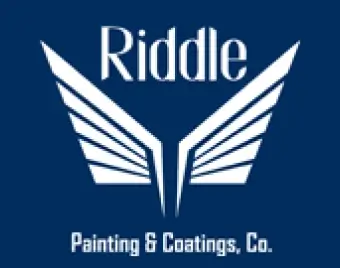Maintaining the appearance and functionality of your industrial facility is essential for smooth operations. One of the most effective ways to protect your facility and ensure it looks its best is through professional industrial painting services. Whether you own a factory, warehouse, or manufacturing plant, industrial painting plays a key role in preserving the infrastructure and ensuring a safe working environment for your team.
In this article, we’ll explore the importance of industrial painting services, the types of coatings available, and how to choose the right painting contractor for your facility.
Why Industrial Painting Services Matter
Industrial environments face harsher conditions than typical commercial or residential spaces. With exposure to heavy machinery, chemicals, and temperature extremes, surfaces in these facilities wear down faster. This is where industrial painting services come in.
Here are a few reasons why industrial painting is essential:
- Protection from Corrosion: Metal surfaces in factories and warehouses are prone to rust and corrosion, especially when exposed to moisture or chemicals. Industrial-grade coatings provide a protective barrier that prevents corrosion, prolonging the life of equipment and structures.
- Improved Safety: Industrial painting services often include specialized coatings that improve the safety of your facility. For example, anti-slip floor coatings can reduce the risk of slips and falls, while bright, reflective paints can enhance visibility in dimly lit areas.
- Aesthetic Appeal: Although functionality is key, the appearance of your facility matters too. Clean, freshly painted walls and equipment can make a better impression on visitors, clients, and employees. It also shows a commitment to maintaining a professional, well-kept environment.
- Increased Equipment Lifespan: Regular maintenance, including painting, extends the lifespan of machinery, piping, and other industrial components. By investing in industrial painting services, you avoid costly repairs or replacements down the line.
Types of Industrial Coatings
Not all paint is created equal, especially when it comes to industrial applications. Professional painters use specialized coatings designed to withstand the rigors of an industrial setting. Here are some common types:
- Epoxy Coatings: Epoxy is known for its durability and resistance to chemicals. It’s often used on floors, machinery, and surfaces that experience heavy traffic or exposure to harsh substances.
- Polyurethane Coatings: Polyurethane provides excellent protection against abrasion and impact, making it ideal for high-traffic areas. It’s also resistant to UV light, so it works well in outdoor settings.
- Intumescent Coatings: These fire-resistant coatings are critical for protecting structural steel in the event of a fire. When exposed to heat, intumescent coatings expand and form a protective barrier, giving your facility added safety.
- Anti-Corrosion Paints: These paints are specifically designed to prevent rust and corrosion, making them essential for environments where metal surfaces are exposed to moisture, chemicals, or salt.
- Anti-Microbial Paints: In settings where hygiene is a top priority, such as food processing plants or pharmaceutical facilities, anti-microbial paints help reduce the growth of bacteria and mold.
Choosing the Right Industrial Painting Contractor
Selecting the right contractor for your industrial painting project is just as important as choosing the right type of paint. You’ll want a company that understands the unique challenges of industrial environments and has the experience and equipment to get the job done safely and efficiently.
Here are a few tips to help you find the right contractor:
- Look for Experience: Industrial painting is a specialized field, so you’ll want a contractor with plenty of experience in similar environments. Ask for references or examples of past projects to ensure they’re qualified.
- Verify Licensing and Insurance: Make sure the contractor is licensed and insured to work on industrial sites. This protects you in case of accidents or damage during the project.
- Check for Safety Standards: Safety should be a top priority for any contractor working in an industrial facility. Ask about their safety protocols and whether they follow OSHA (Occupational Safety and Health Administration) standards.
- Consider the Timeline: Downtime can be costly, so look for a contractor who can work within your schedule. Many industrial painting companies offer after-hours or weekend services to minimize disruption to your operations.
Conclusion: Protect Your Facility with Professional Industrial Painting Services
Industrial painting services are more than just cosmetic upgrades—they’re a critical part of maintaining the safety, functionality, and longevity of your facility. From corrosion protection to safety enhancements, professional painters can provide solutions that keep your facility running smoothly.
If you’re looking to enhance your facility’s appearance and protect your investment, now is the time to consider industrial painting services. Contact our team today to learn more about our comprehensive painting solutions and schedule a consultation. Let us help you keep your facility in top condition for years to come.
